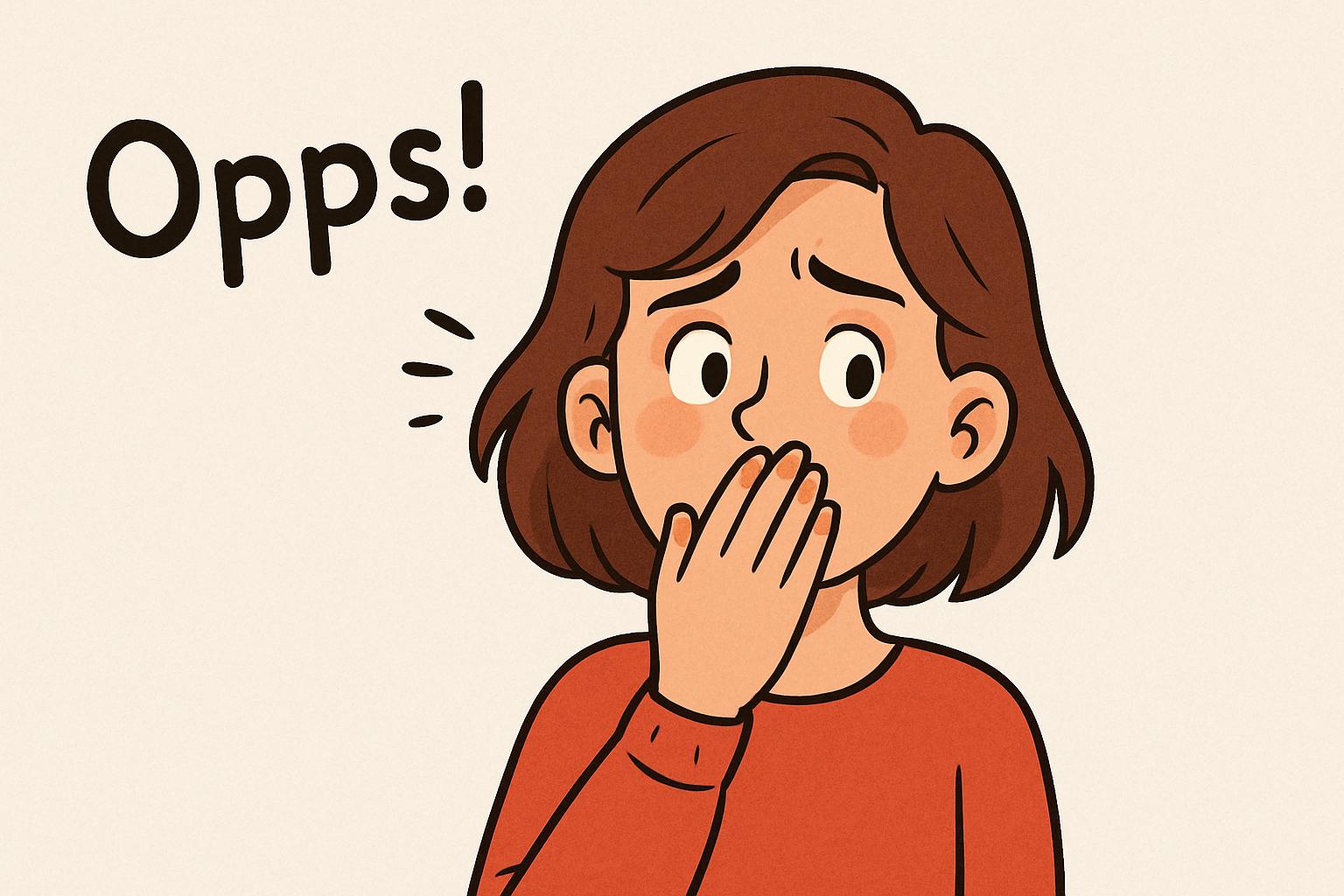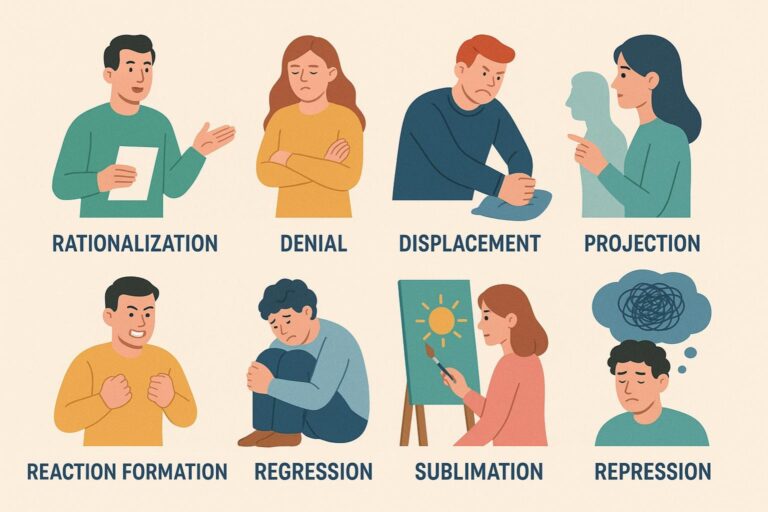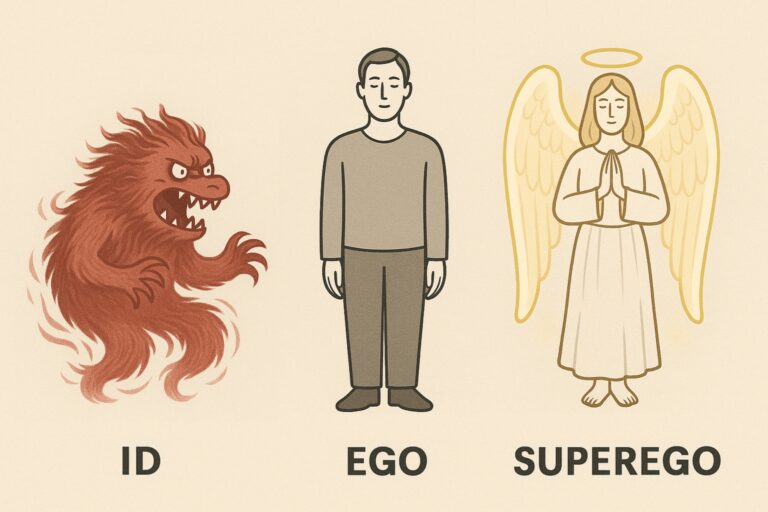What Freudian Slips Say About Your Mind and Why They Happen

Quick Summary
A Freudian slip is a psychological term for an unintentional mistake in speech, writing, or behavior that may reflect unconscious thoughts or feelings. First introduced by Sigmund Freud, these slips became central to psychoanalytic theory and later entered pop culture. While Freud saw them as meaningful revelations of the unconscious, modern psychology often interprets them as natural cognitive errors in speech and memory.
Introduction
Most people have experienced saying one thing but accidentally meaning another—like calling someone by the wrong name or saying something unintended. In psychology, such mistakes are often referred to as Freudian slips, based on the work of Sigmund Freud. He believed these small errors reveal deeper, hidden thoughts residing in the unconscious mind.
What Is a Freudian Slip?
A Freudian slip, also known as a parapraxis, is an accidental error in speech, writing, or behavior that may unintentionally express a repressed thought or feeling. Freud argued that these mistakes are not simply random but occur when unconscious desires momentarily override conscious control.
For example, someone might say “I’m glad to beat you” instead of “I’m glad to meet you,” or accidentally call a partner by an ex’s name. These slips, according to Freud, provide insight into the unconscious.
How the Term Came About
Freud introduced the concept in his 1901 book, The Psychopathology of Everyday Life, where he examined everyday mistakes such as slips of the tongue, forgotten names, and misplaced objects, and proposed that they reflected underlying psychological conflict. Over time, these kinds of errors became known as Freudian slips, emphasizing their role in revealing unconscious thoughts, a concept that became fundamental to Freud’s theory of psychoanalysis.[1]
Common Examples of Freudian Slips
- Calling someone by the wrong name, such as calling a current partner by an ex’s name.
- Swapping words, like saying “sad to see you” instead of “glad to see you.”
- Mistyping or miswriting, such as typing “greatful” instead of “grateful.”
- Unintentional phrasing, like “I’ll go with you” instead of “I’ll go for you,” which may reflect a hidden personal wish.
Freud believed these slips were not trivial mistakes, but meaningful expressions of the unconscious mind.
Psychological Interpretation
Freud’s Psychoanalytic View
Freud theorized that the human mind consists of multiple layers, including the unconscious, which stores repressed thoughts, unresolved conflicts, and hidden desires. According to Freud, slips of the tongue, forgotten names, and similar everyday errors occur when this unconscious material breaks through the surface.[1]
In psychoanalytic practice, such slips are interpreted as clues to internal struggles. For example, repeatedly confusing a therapist’s name with a parent’s could be viewed as a form of emotional transference.
Contemporary Perspectives
Modern psychologists and linguists have challenged Freud’s interpretation of slips as expressions of the unconscious.
Victoria Fromkin, a linguist, argued that speech errors are systematic and follow predictable patterns based on how language is processed in the brain. In her 1971 paper, she demonstrated that slips can be studied scientifically without relying on psychoanalytic interpretation.[2]
Gary Dell, a cognitive psychologist, expanded this view by developing the Spreading Activation Model of speech production. According to Dell, slips happen when similar words or sounds compete for selection in the brain’s language system. He argued that these errors result from normal processing, not hidden wishes or emotional repression.[3]
Together, Fromkin and Dell offer a cognitive-linguistic explanation for slips: they are minor glitches in how the brain organizes and retrieves language, not symbolic expressions of the unconscious mind.
Conclusion
Freudian slips remain a fascinating and often humorous part of how we understand language and thought. Freud believed these slips were windows into the unconscious mind, revealing what we try to repress. However, modern psychology offers a different perspective, viewing most slips as natural outcomes of how the brain processes language.
While not every error reveals a hidden desire, Freudian slips continue to intrigue psychologists, students, and the general public alike—as moments where the mind seems to momentarily reveal more than we intended.
Freudian slips are just one part of Freud’s broader view of the mind. Explore more in our articles on Freud himself and his psychoanalytic theory.
References
- Freud, S. (1960). The psychopathology of everyday life. In J. Strachey (Ed. & Trans.), The standard edition of the complete psychological works of Sigmund Freud (Vol. 6, pp. 1–296). Hogarth Press. (Original work published 1901)
- Fromkin, V. A. (1971). The non-anomalous nature of anomalous utterances. Language, 47(1), 27–52.
- Dell, G. S. (1986). A spreading-activation theory of retrieval in sentence production. Psychological Review, 93(3), 283–321. https://doi.org/10.1037/0033-295X.93.3.283





